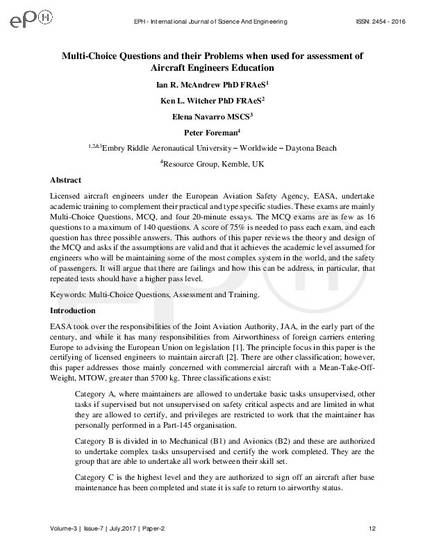
Licensed aircraft engineers under the European Aviation Safety Agency, EASA, undertake academic training to complement their practical and type specific studies. These exams are mainly Multi-Choice Questions, MCQ, and four 20-minute essays. The MCQ exams are as few as 16 questions to a maximum of 140 questions. A score of 75% is needed to pass each exam, and each question has three possible answers. This authors of this paper reviews the theory and design of the MCQ and asks if the assumptions are valid and that it achieves the academic level assumed for engineers who will be maintaining some of the most complex system in the world, and the safety of passengers. It will argue that there are failings and how this can be address, in particular, that repeated tests should have a higher pass level.
Available at: http://works.bepress.com/kenneth-l-witcher/4/
